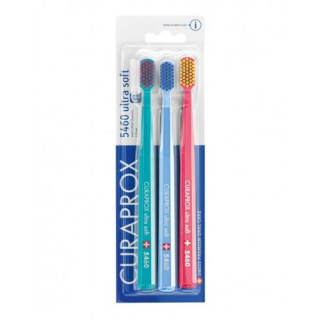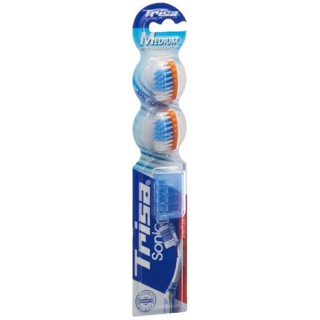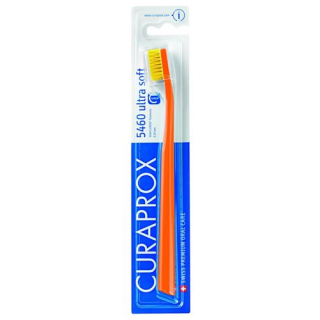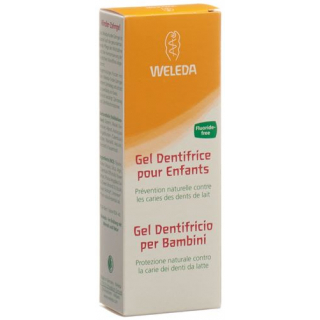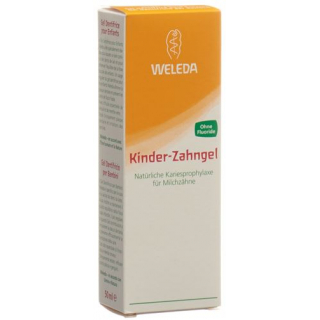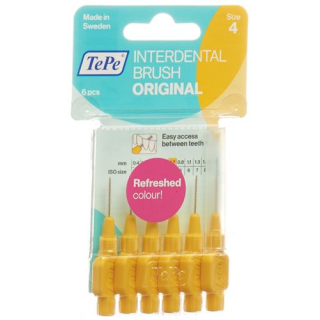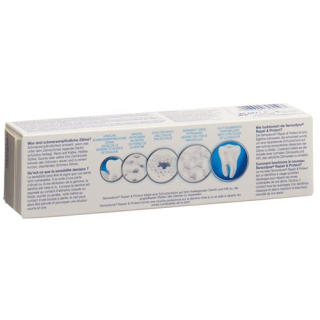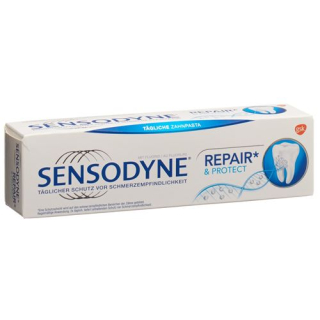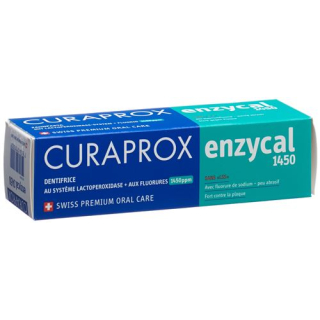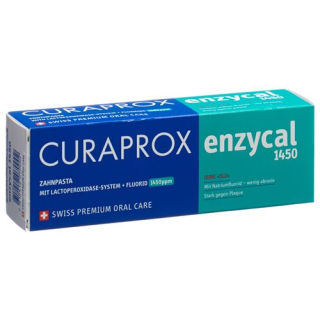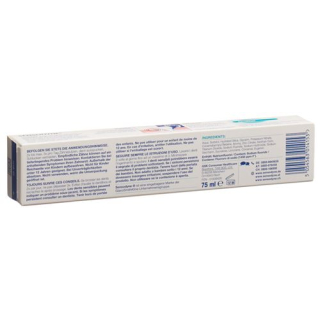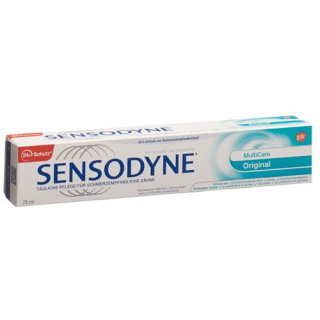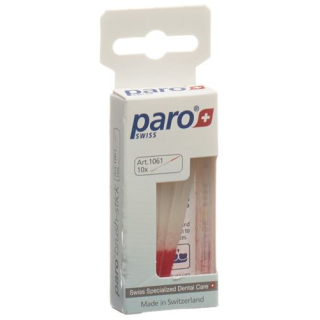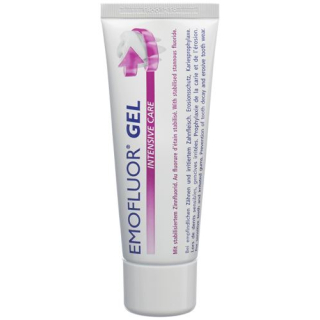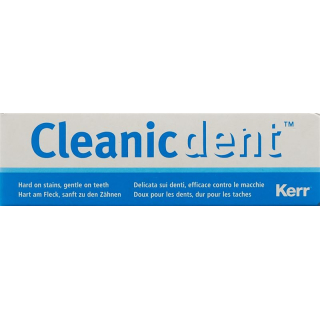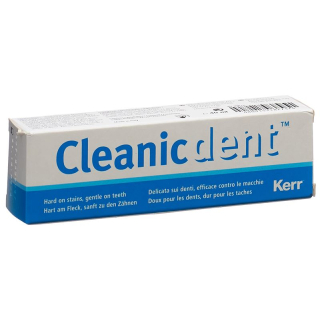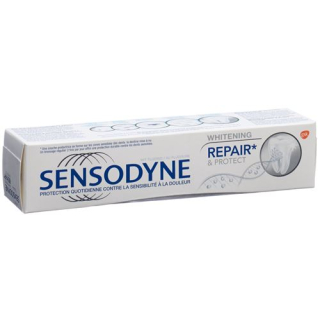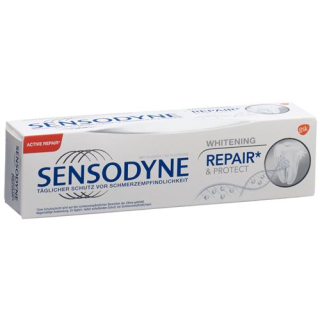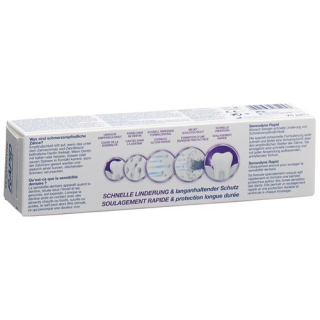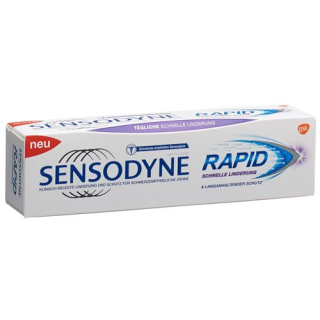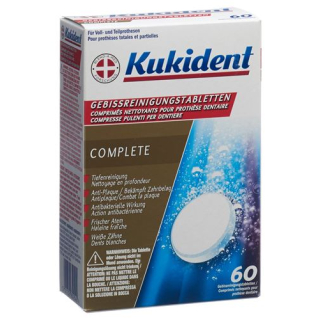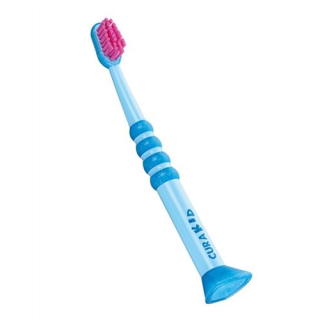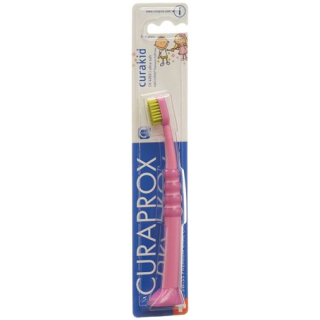Oral Care
(61 Pages)
Refine Search
Curaprox CS 5460 trio pack
Characteristics of Curaprox CS 5460 TriopackAmount in pack : 1 piecesWeight: 0.00000000g Length: 0mm..
26.36 USD
Trisa Sonicpower replacement set sonic toothbrush medium 2 pcs
Trisa Sonic Power Replacement Set Sonic Toothbrush Medium 2 Pcs Keep your dental health in check wi..
16.53 USD
Curaprox Sensitive Toothbrush Compact ultrasoft CS 5460
Gentle and incredibly efficient Your gums will fall in love with this toothbrush: thanks to 5460 CUR..
12.21 USD
WELEDA children's tooth gel 50 ml
The Weleda children's tooth gel is specially tailored to the health-maintaining care of milk teeth a..
13.59 USD
TePe Interdental Brush 0.7mm yellow Blist 6 pcs
Characteristics of TePe Interdental Brush 0.7mm yellow Blist 6 pcsAmount in pack : 6 piecesWeight: 2..
24.34 USD
Sensodyne Repair & Protect Toothpaste Tb 75 ml
Sensodyne Repair & Protect Toothpaste Tb 75 ml Do you experience tooth sensitivity when you eat..
18.56 USD
Curaprox Enzycal 1450 toothpaste German/French/English 75
Characteristics of Curaprox Enzycal 1450 toothpaste German / French / English 75 mlAmount in pack : ..
17.83 USD
Sensodyne MultiCare Original toothpaste 75 ml
Toothpaste suitable for the daily care of sensitive teeth.Properties Sensodyne Multicare Original To..
15.65 USD
PARO BRUSH STICKS artificial toothpicks 10 pcs
Plastic wedge with fluffy brush for lasting cleaning of practically all spaces between teeth, brush..
16.91 USD
Emofluor Gel Tb 75ml
Gel for targeted protection against sensitive teeth.CompositionContains stabilized stannous fluoride..
27.75 USD
CEANICDENT TEETH CLEANING PASTE TB 40 ML
CLEANICDENT Zahnreinigungspaste CLEANICDENT Zahnreinigungspaste is a high-quality dental care produc..
23.20 USD
Sensodyne Repair & Protect whitening toothpaste 75 ml
Sensodyne Repair & Protect Whitening Toothpaste 75 ml If you're looking for toothpaste that can..
18.56 USD
Sensodyne Rapid Toothpaste Tb 75ml
Toothpaste for pain relief for sensitive teeth. Used regularly to prevent toothache associated with ..
20.48 USD
Kukident cleaning tabs fresh mint 60 pcs
Characteristics of Kukident cleaning tabs fresh mint 60 pcsCertified in Europe CEAmount in pack : 60..
16.66 USD
Curaprox CK 4260 super soft children's toothbrush
Toothbrush for children 0-4 years oldProperties< p>Right from the start.The cuddly toy among toothbr..
12.25 USD
(61 Pages)
Oral care is the practice of caring for the teeth, gums, and mouth to maintain good oral health. This includes a variety of habits such as brushing, flossing, and regular dental checkups. Proper oral care is important to prevent tooth decay, gum disease, and other dental problems that can affect your overall health and well-being. To maintain proper oral care, it is important to brush your teeth at least twice a day with fluoride toothpaste. Brushing helps remove plaque, a sticky film of bacteria that can build up on teeth and cause tooth decay and gum disease. It's also important to floss daily to remove food particles and plaque between your teeth and along the gum line where a toothbrush can't reach. At Beeovita, we offer you quality oral care, dentures, spacers, teeth whitening products and toothbrushes.
A toothbrush is a necessary tool for maintaining proper oral hygiene. Toothbrushes come in different types, including manual and electric, and have different types of bristles such as soft, medium, and hard. It is important to choose a toothbrush that fits comfortably in the mouth and has soft bristles that are gentle on the teeth and gums. It is also recommended to change your toothbrush every three to four months or sooner if the bristles are worn.
In addition to brushing and flossing, it is important to have regular dental checkups. Dental exams allow your dentist to identify potential problems at an early stage and prescribe appropriate treatment. During a dental exam, your dentist will usually examine your teeth, gums, and mouth, take X-rays if necessary, and clean your teeth to remove any plaque and tartar build-up.
It is also important not to forget about the interdental spaces - these are the gaps between the teeth. These areas are important to clean because they can trap food particles and bacteria that can cause tooth decay and gum disease. Interdental spaces can be cleaned with floss, interdental brushes, or water floss.
And a white smile is the key to self-confidence and a good mood. Teeth whitening is a cosmetic dental procedure aimed at whitening teeth by removing surface stains and discoloration. There are several methods of teeth whitening, including in-office treatments, at-home kits, and natural remedies. It is important to discuss your teeth whitening options with your dentist to determine the best method for you. In general, good oral care is necessary to maintain oral health and prevent dental problems. By developing healthy habits like brushing, flossing, and regular dental checkups, you can ensure that your teeth and gums stay healthy for a lifetime.

